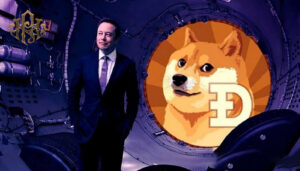
Close



In this article, we look at one of the most prominent adopters of Dogecoin, Tesla, and explore the implications of this move for the company and the broader cryptocurrency ecosystem. In the ever-evolving cryptocurrency landscape, few digital assets have captured the public imagination like Dogecoin. Originally created as a simple joke, Dogecoin has become a legitimate player in the cryptocurrency market, fueled by a vibrant community and celebrity endorsements. One of the most unexpected backers of DodeCoin is Tesla Inc., the electric car giant led by visionary entrepreneur Elon Musk.
Dogecoin appeared as a fork of Litecoin in December 2013 and featured the Shiba Inu dog symbol as its logo. Created by software engineers Billy Marcus and Jackson Palmer, Dogecoin was envisioned as a playful alternative to Bitcoin, with low transaction fees and fast block times, making it ideal for microtransactions and tipping. Despite its humorous origins, Dogecoin quickly gained popularity and attracted a passionate community known for its charitable efforts and meme culture.
Elon Musk, the enigmatic CEO of Tesla and SpaceX, has long been known for his unorthodox approach to business and technology. Musk’s penchant for memes and social media has endeared him to millions of followers who eagerly await his tweets and announcements. Musk’s tweets often have a significant impact on financial markets, especially cryptocurrencies, with his approval and criticism driving prices up or down.
Elon Musk’s interest in Dogecoin dates back to 2019 when he tweeted: “DogeCoin may be my favorite cryptocurrency. It is very interesting.” Since then, Musk has frequently tweeted about Dogecoin, often with memes and jokes. His tweets have had a significant impact on the price of Dogecoin, causing a sudden increase in trading volume and market volatility. Despite facing criticism for his influence on cryptocurrency markets, Musk remains adamant in his support for Dogecoin.

In May 2021, Elon Musk announced via Twitter that Tesla would accept Dogecoin as payment for its electric vehicles. The announcement sent shock waves through the cryptocurrency community, with many hailing it as a turning point for the mainstream adoption of Dogecoin. Musk’s decision to accept Dogecoin as a payment method shows Tesla’s willingness to embrace innovation and push traditional financial boundaries.
Tesla’s adoption of Dogecoin has several positive and negative implications for the company. On the plus side, the adoption of Dogecoin could attract a new segment of customers who are interested in cryptocurrencies and are eager to support companies that accept them. Tesla’s decision could also generate positive publicity and strengthen its brand image as a forward-looking, tech-savvy company.
However, there are also potential risks and challenges with Tesla’s embrace of Dogecoin. Dogecoin price volatility and lack of regulatory oversight could create financial risks for Tesla, as volatility in the cryptocurrency market affects the company’s revenue and profitability. In addition, Tesla’s decision to accept DogeCoin could alienate traditional investors and shareholders who are skeptical of cryptocurrencies and view them as speculative assets.
Tesla’s adoption of Dogecoin is a significant validation of the legitimacy and potential of this digital currency as a medium of exchange. Dogecoin’s community-driven ethos and meme culture have helped set it apart from other cryptocurrencies, attracting a loyal following of enthusiasts and supporters. Tesla’s approval could further boost Dogecoin’s credibility and encourage other companies to accept it as payment.
However, Dogecoin still faces several challenges on its way to mainstream adoption. Its lack of scalability and limited use cases beyond tipping and charitable donations could prevent its long-term viability as a payment method. Additionally, regulatory uncertainty and concerns about money laundering and fraud could reduce institutional interest in Dogecoin and hinder its growth.
Tesla’s decision to accept Dogecoin raises important questions about regulatory compliance and oversight. Cryptocurrency regulations vary significantly from country to country, with regulators grappling with issues such as investor protection, financial stability and compliance with anti-money laundering laws. Tesla must ensure that Dogecoin acceptance complies with applicable laws and regulations, including Know Your Customer (KYC) and Anti-Money Laundering (AML) requirements.
Tesla’s adoption of Dogecoin is a bold and unconventional move that shows the company’s willingness.
Willingness to embrace innovation and challenge the status quo. While the decision comes with risks and uncertainty, it also has the potential to generate positive publicity and attract new customers. Additionally, Tesla’s endorsement could help legitimize Dogecoin and pave the way for its wider adoption as a mainstream payment method.
However, both Tesla and Dogecoin face significant challenges on the road to widespread adoption. Tesla must navigate the regulatory complexities and financial risks associated with cryptocurrency adoption, while Dogecoin must overcome scalability issues and regulatory scrutiny. Despite these challenges, Tesla’s adoption of Dogecoin represents an important milestone in the evolution of digital currency and its integration into mainstream commerce. As both companies continue to innovate and push the boundaries of technology, their collaboration can help shape the future of finance and business in the digital age.